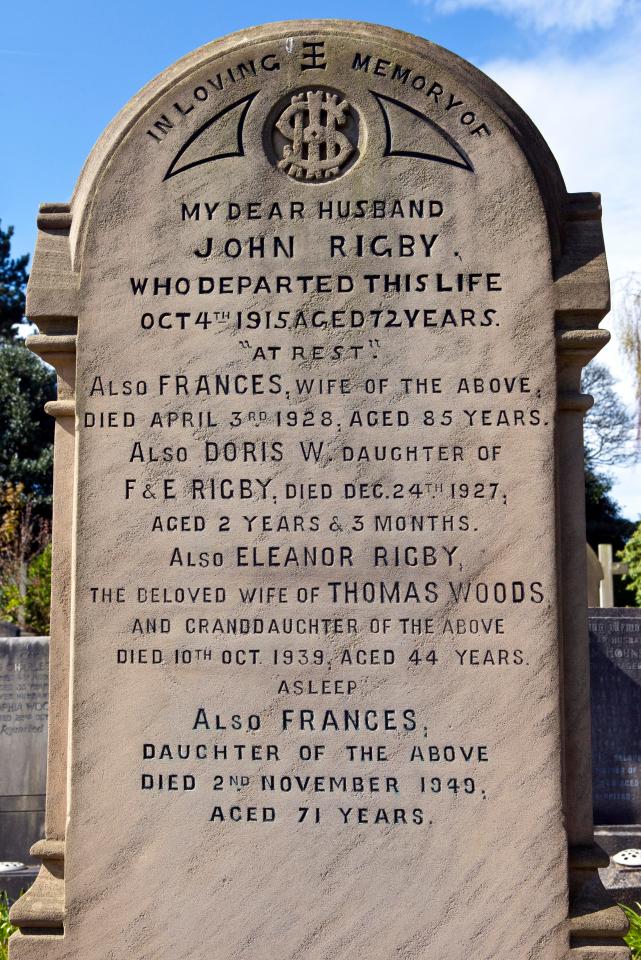Today it was announced that the deeds for the grave thought to have inspired the timeless tune will go on sale at an auction next month.
They’re expected to reach between £2,000 and £4,000, and whoever buys them will have the right to be buried on top of Ms Rigby in St Peter’s churchyard in Woolton, Liverpool.
But who was the woman thought to have inspired the band’s classic 1966 melody about loneliness and depression? Paul reportedly claimed it was a name that just came to him, partly inspired by actress Eleanor Bron, who starred with The Beatles in the film Help!.
 The Rigby part allegedly came from a shop in Bristol – Rigby & Evens Ltd, Wine & Spirit Shippers – that McCartney spotted while watching then-girlfriend Jane Asher perform in The Happiest Days Of Your Life.
The Rigby part allegedly came from a shop in Bristol – Rigby & Evens Ltd, Wine & Spirit Shippers – that McCartney spotted while watching then-girlfriend Jane Asher perform in The Happiest Days Of Your Life.
He said in 1984: “I just liked the name. I was looking for a name that sounded natural. Eleanor Rigby sounded natural.”
Not long after, the grave bearing Eleanor Rigby’s name was spotted in the Woolton cemetery – with another one featuring the name McKenzie a few yards away.
In the song, the stark lyrics tell of a Father McKenzie writing “the words of a sermon that no one will hear” and “darning his socks in the night when there’s nobody there”. Paul acknowledged that strange coincidence and admitted the name could have been a product of his subconscious.
The real Eleanor Rigby was born in 1895 and lived in Liverpool, where she married a man called Thomas Woods and is believed to have worked as a scullery maid.
She died aged 44 on October 10, 1939 – and was buried (along with her name) in the same grave as several family members including her grandparents, whom she lived with until her death.
Her tombstone has since become a landmark for Beatles fans visiting the city.
Whoever buys the space in her grave will be granted exclusive right of burial for 99 years.
Once these rights have expired, no one else can be laid to rest there until the grave is purchased again.
Human remains by law can be disturbed after 75 years from the date of the last full burial in the grave.
 So, given that the last person to be laid to rest in the Rigby family grave was 68 years ago, in 1949, whoever buys the deeds could be buried there in seven years’ time.
So, given that the last person to be laid to rest in the Rigby family grave was 68 years ago, in 1949, whoever buys the deeds could be buried there in seven years’ time.
The lot, which includes a miniature bible dated 1899 with the name Eleanor Rigby written inside, will go on sale alongside the original handwritten score for the song, which is expected to fetch £20,000.

